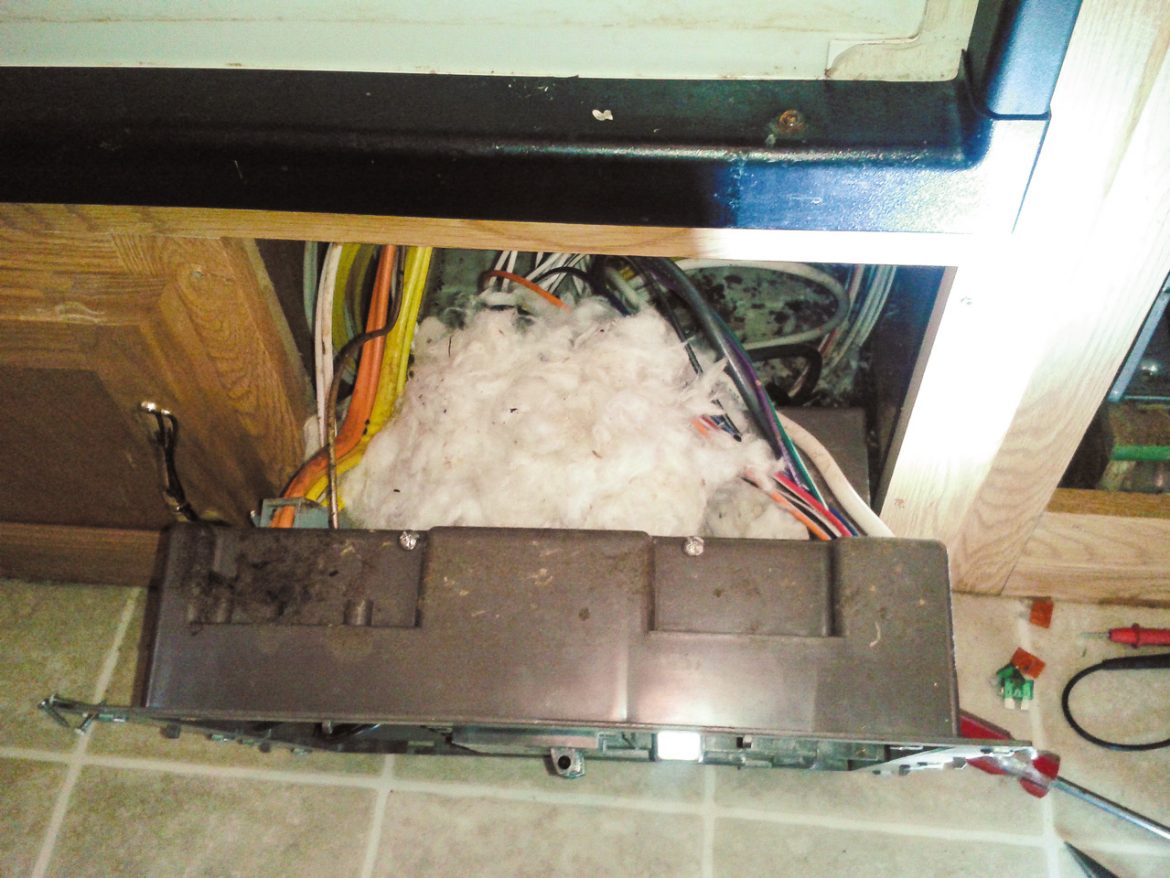By Steve Froese, F276276
While vehicle maintenance is an important part of keeping our RVs in good shape, we don’t always consider preventing insects, rodents, and other creatures from entering our vehicle as part of the upkeep. Such things are an annoyance at best and can result in serious damage at worst. Therefore, keeping critters out of your RV should be on your agenda.
Rodents will try to enter your RV primarily for food and shelter. For those who keep their homes on wheels stocked, identify areas in the vehicle where mice can’t gain access and store food there. Possibilities include any cupboard or space that is completely sealed off, with no access holes and with a tightly closing door, especially cupboards above counter level. Keep linens and paper products out of reach of the vermin as well, as they like to use them for nesting materials.
Rodents gain entrance to your unit through the underbelly, floor, or basement by utilizing any hole or cutout larger than ¼ inch. Fill any gaps you find with spray foam, sealant, or steel wool. Many of these cutouts are access holes for electrical, plumbing, or propane lines.
In addition to keeping them out, it’s important to watch for signs of critter occupation within your RV. If they do get in, it’s imperative to catch them early, before they multiply or damage your unit by chewing on electrical wiring or other critical components.
Look for signs of activity, such as droppings, chewed items or food, or nesting. Don’t forget to search the basement compartments and other storage areas. Remove drawers and panels and look behind them for evidence of infestation. Leave no stone unturned when seeking the rodents. If you spot any sign of activity, strategically place traps baited with peanut butter in those areas.
Products other than snap traps can be used, but I have had limited success with them. If you are keen to avoid traps or poison, you can purchase repellents at retail outlets, or search the plethora of home remedies on the internet. Be sure to use products that are safe for pets and children if you travel with them.
In terms of protecting your wiring, hoses, and other chassis components, there is a lot of information on the internet about this. Among the solutions circulating are covering the wiring and hoses with wire mesh, using commercially available rodent-deterring tape (basically electrical tape coated in super-spicy capsaicin), or even smearing them with hot sauce. These suggestions may be met with limited success, but if you have concerns about vermin feasting on your chassis components, they may be worth investigating.
To detract insects, you might consider installing screens on your water heater, fridge, and furnace vents to prevent spiders and mud daubers from building webs or nesting in there, as they are attracted to the ethyl mercaptan odorant added to propane. Regularly inspect these areas, including removing the fridge vent, to make sure no insects have made homes there.

